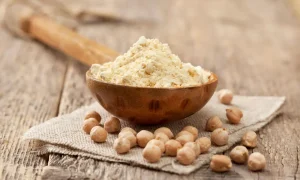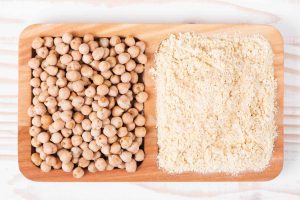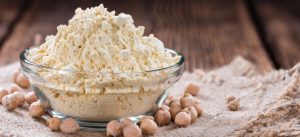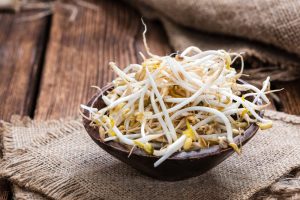
Beans sprout. The early, edible shoots of sprouted beans are called bean sprouts. They are a common addition to many Asian meals, giving them a slightly nutty flavor and a crunchy texture. It can be grown from a wide variety of beans, although the most popular ones are from soybeans and mung beans. It can be grown yourself or purchased at most supermarkets. As long as you have a covered container and a secure location to keep them out of direct sunlight, they grow readily from seed.
BEANS SPROUT
Plants go through baby stages called sprouts. Beans and some vegetables (such as broccoli, mustard green, red clover, and alfalfa) are among the many different plants that sprout. Moreover, certain grains, seeds, and nuts can sprout. Alfalfa and mung beans are two of the most widely consumed types of sprouts. You can stir-fry mung bean sprouts since they are more juicy.
1. support for blood pressure

Protein building pieces called peptides in bean sprouts may help prevent and cure hypertension, another name for high blood pressure. Certain peptides function similarly to medications for hypertension, which may help reduce blood pressure. They do not, however, take the place of medically prescribed medication.
2. Preventing cancer
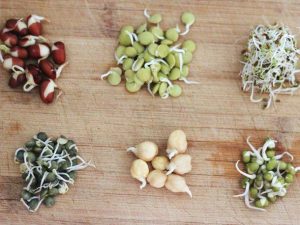
Additionally, bean sprout proteins may lower the risk of cancer. According to studies, these nutrients can decrease the growth of cancer cells, particularly those linked to leukemia, breast cancer, and tumors of the digestive system.
3. Digestive health
Fiber, found in bean sprouts, helps with digestion. It picks up and carries waste materials as it passes swiftly through the digestive system. Fiber aids with colon cleansing. It functions similarly to an interior scrub brush. To avoid constipation, make sure your diet has adequate fiber.
4. Heart health

By regulating cholesterol, bean sprouts may help to improve your general heart health. Sprouts may help lower bad low-density lipoprotein (LDL) cholesterol, which leads to the accumulation of artery-clogging plaque, according to a small research conducted on diabetics. High-density lipoprotein (HDL) cholesterol, which aids in the removal of fatty deposits from the blood, may also be elevated by bean sprouts.
5. Inflammation
According to certain research, bean sprouts may aid in the regulation of molecules related to immunological responses. By reducing inflammation, this may help treat diabetes and obesity as well as prevent autoimmune diseases and some types of cancer.
6. Diabetes

Because of their low glycemic index, bean sprouts don’t cause blood sugar levels to rise. According to certain research, mung beans may help control blood sugar and insulin levels.
Summary
Bean sprouts give sandwiches, stir-fries, salads, and more a crunchy texture. Despite being nutrient-dense, they occasionally harbor bacteria that cause illness. Raw sprouts should not be consumed by pregnant women, elderly individuals, children, or those with compromised immune systems. By preparing sprouts before consumption, you can reduce your chance of becoming ill.

 Travel4 weeks ago
Travel4 weeks ago
 Health2 weeks ago
Health2 weeks ago
 Health3 weeks ago
Health3 weeks ago
 Health3 weeks ago
Health3 weeks ago















